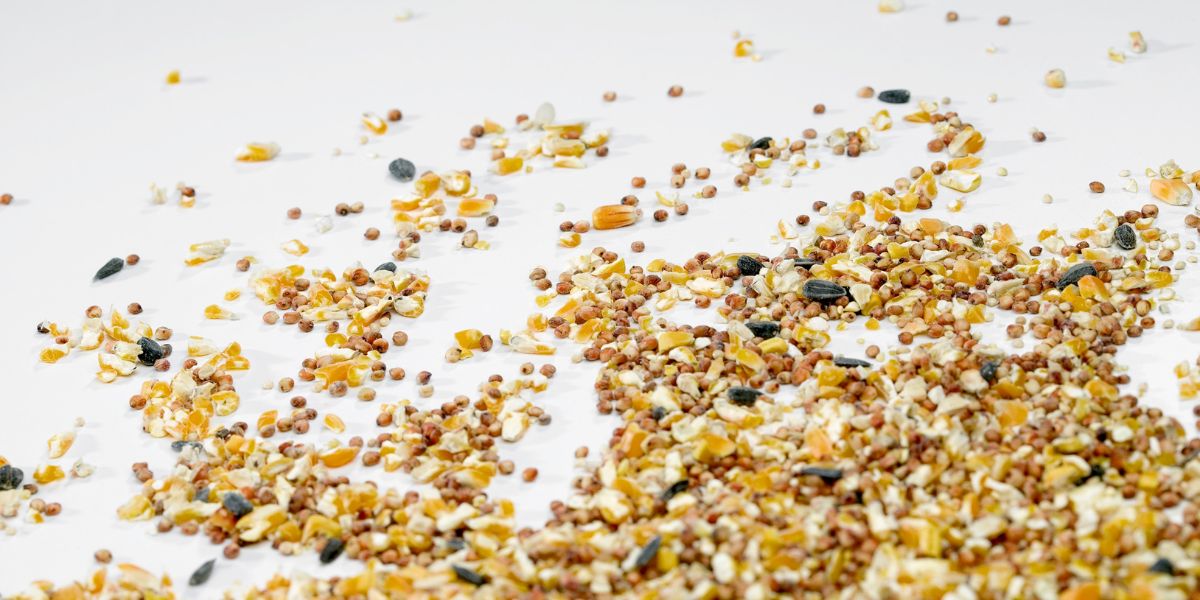
When selecting birdseed, it's crucial to understand that not all seeds are created equal. Consider the diverse dietary needs of birds and the specific seeds that will cater to them. Seed size, nutritional value, and shell thickness all play a role in attracting a variety of bird species to your feeders. Choosing the right birdseed can make a notable difference in the type of birds you'll welcome to your backyard oasis. Remember, the seed you select can determine the feathered visitors that grace your garden, so choose wisely for a vibrant and diverse avian community.
Benefits of Different Birdseed Varieties
When selecting birdseed, consider the nutritional benefits of various seed varieties to attract a diverse range of bird species. Sunflower seeds are a popular choice among birds as they're rich in healthy fats, proteins, and essential nutrients. These seeds are particularly favored by finches, chickadees, and cardinals.
Nyjer seeds, also known as thistle seeds, are excellent for attracting finches, such as goldfinches and siskins, due to their high oil content.
Safflower seeds are a good option if you wish to deter squirrels, as they've a bitter taste that many squirrels dislike, while still attracting birds like cardinals and chickadees.
Black oil sunflower seeds are another nutritious choice that appeals to a wide variety of bird species, including sparrows, jays, and nuthatches.
Additionally, peanuts and suet provide birds with essential fats and proteins, making them valuable food sources, especially during the winter months.
Factors to Consider When Choosing Birdseed
To select the right birdseed for your backyard visitors, consider the dietary preferences and needs of the bird species you wish to attract. Different bird species have varying preferences when it comes to seed types. Factors such as the size of the seed, the seed's nutritional content, and even the shell thickness can influence which birds are attracted to your feeders.
Another essential factor to consider is the cleanliness and freshness of the birdseed. Ensure that the seed you choose is free from dust, debris, and mold, as these can be harmful to birds. Additionally, opting for fresh birdseed will help maintain its nutritional value, attracting more birds to your garden.
Furthermore, think about the feeder types you have in your backyard. Some birds may prefer platform feeders, while others might be more inclined to visit tube feeders or hopper feeders. By understanding the feeding habits of the bird species you want to attract, you can select the appropriate birdseed and feeder combination to create a welcoming environment for your feathered friends.
Understanding Bird Preferences for Seed Types
Consider the specific seed types favored by different bird species to effectively cater to their dietary needs and preferences. Understanding bird preferences for seed types is crucial in attracting a variety of birds to your feeders.
For example, black-oil sunflower seeds are a favorite among many bird species due to their high oil content and thin shells, making them easy to crack open. Cardinals and finches are particularly fond of these seeds.
Nyjer seeds, on the other hand, are preferred by finches, such as goldfinches and siskins. These tiny seeds are high in oil and provide essential nutrients for these small birds.
Additionally, millet is a common seed found in many birdseed mixes and is favored by ground-feeding birds like sparrows, doves, and towhees.
Tips for Avoiding Low-Quality Birdseed
Beware of birdseed that appears discolored or contains a high amount of fillers, as these are indications of low-quality seed. When selecting birdseed, opt for options that have a vibrant and natural color, indicating freshness. Low-quality birdseed often contains a high percentage of fillers like cracked corn, milo, or wheat, which are less nutritious for birds and can lead to a lot of waste in your feeders.
To avoid purchasing subpar birdseed, always check the ingredient list on the packaging. Look for seed mixes that include high-quality ingredients such as black oil sunflower seeds, nyjer seeds, and nuts. These premium seeds are rich in essential nutrients and healthy fats that birds need to thrive.
Another red flag for low-quality birdseed is the presence of debris, dust, or signs of moisture in the bag. Quality birdseed should be clean, dry, and free from any foreign objects. Inspect the packaging before buying to ensure you're getting the best seed for your feathered friends.
How to Store Birdseed Properly
Proper storage of birdseed is essential to maintain its freshness and quality for your feathered visitors. When storing birdseed, ensure it's kept in a cool, dry place away from direct sunlight. Consider using airtight containers or resealable bags to prevent moisture and pests from compromising the seed. It's best to store birdseed off the ground to avoid potential moisture absorption. Check the storage area periodically for any signs of mold or pests, and discard any contaminated seed to prevent harm to birds.
Rotate your birdseed stock by using older seed first before opening a new bag. This practice helps to maintain freshness and prevent the seed from spoiling over time. Additionally, label your birdseed containers with the purchase date to keep track of freshness. By following these storage tips, you can ensure that the birdseed remains a nutritious and safe food source for the avian visitors to your yard.




